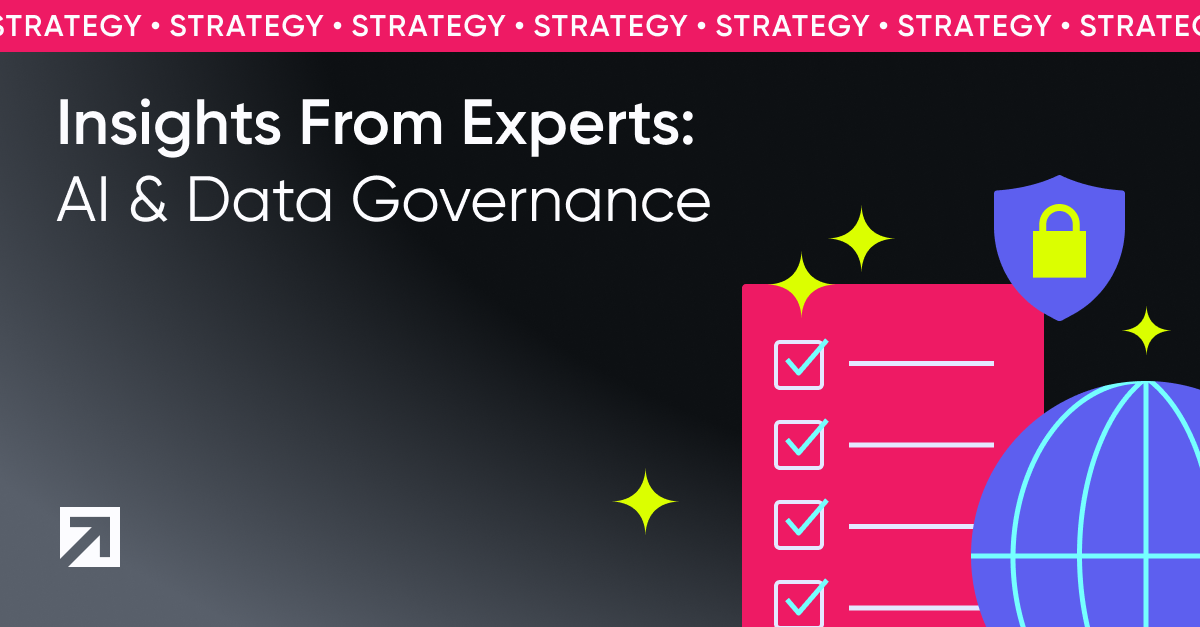

Last week, Xmartlabs hosted an expert panel on AI and data governance as part of our Xmartlabs Roundtable Talks. This insightful discussion brought together industry experts to share their perspectives on the latest trends, challenges, and best practices in AI and data governance. In this blog, we summarize the key insights from the talk, aiming to share the valuable knowledge imparted by our panelists. Stay tuned for more expert panels in the future and get real-time insights!

First thing's first: The importance of data governance in AI
The panel emphasized the crucial role of data governance in AI projects. While young teams often see data governance as a necessary evil, it should be considered part of a broader data strategy. Effective data governance involves understanding the origins, value, and ownership of data and safeguarding it to avoid reputational risks.
Nazila compared data governance to managing the contents of a refrigerator. Knowing the details about each item helps maintain order and efficiency, rather than simply closing the door and hoping for the best. This highlights the importance of a thorough and proactive approach to data management.
Takeaway: Data governance is not a necessary evil. Understanding your data’s origins, value, and ownership is an integral part of your data strategy.
The role of regulations and compliance standards
The discussion also covered the significant impact of regulations on data governance practices. AI governance is broader than data governance, encompassing the entire AI process and its outcomes. Proper data governance ensures that data is well-prepared and aligned with regulatory standards, reducing risks.
Compliance builds trust and can become a competitive advantage, especially in projects involving sensitive data like facial recognition. Ensuring that data and AI outputs meet regulatory standards helps organizations build a reputation for reliability and ethical practices.
Takeaway: Compliance with regulations not only reduces risks but also builds trust and can serve as a competitive advantage, especially in projects involving sensitive data.
How to evaluate success in terms of compliance
Measuring compliance success is crucial for demonstrating readiness and solid data management. Achieving desired outputs on the first attempt, or "first time right" (FTR), reflects the level of readiness and effort invested in data traceability.
Compliance not only ensures regulatory adherence but also enhances a product’s reputation and market positioning. By consistently meeting compliance standards, organizations can gain a competitive edge and foster customer trust.
Takeaway: Meeting compliance standards enhances reputation and market positioning, giving organizations a competitive edge and increasing customer trust.
About collaboration between industry, academia, and government
The panel stressed the value of diverse talent and the importance of collaboration. Encouraging open dialogue within teams and with external partners can lead to better understanding and innovative solutions. Setting aside time for team members to voice concerns and ideas fosters a culture of constructive questioning.
Collaboration extends beyond internal teams to include industry, academia, and government partnerships (though it doesn't need to be high-ranking individuals, it suffices with personal connections working in public administration). Engaging with external stakeholders helps organizations stay connected, avoid working in silos, and enhance diversity and collaboration. Such partnerships can also facilitate access to resources and knowledge sharing.
Takeaway: Make sure to stay in touch with other areas (especially government) to share thoughts and experiences, and foster the collective growth of an area we're building as we go.
The role of brand in AI
Maintaining truthfulness in AI branding is crucial in an era where the authenticity of information is often questioned. Companies that admit mistakes and take ownership of their shortcomings will build a trustworthy brand. Honesty and transparency are valuable assets that will help organizations build long-term trust with their stakeholders.
Takeaway: Honesty and transparency in AI branding build long-term trust and strengthen stakeholder relationships.
Data regulation across different regions
The different approaches to AI and data governance across the US, Europe, and China were also discussed. The US leads in innovation, Europe emphasizes data privacy and quality control, and China balances innovation with strict regulations. These differences allow for cross-learning and adopting best practices from each region.
Global commerce is increasingly treating data as a valuable asset, with discussions on data ownership and its role in geopolitical contexts becoming more common. Recognizing the value of data at a national level and managing it correctly can help countries leverage this asset for economic and strategic benefits.
Takeaway: Different regional approaches to data governance offer valuable cross-learning opportunities, with each region's strengths providing insights for better global practices.
To sum up
Data governance is becoming increasingly important in a world where data plays a critical role in geopolitics, business, and trade. Effective data governance mitigates risks and ensures that countries and organizations can manage their data assets responsibly and strategically.
Collaboration and transparency are crucial to steering AI evolution towards safe and ethical practices. Engaging with other companies and public administration members can help shape the standards that guide us toward compliance.
We hope these insights inspire you to delve deeper into the topic and explore how these principles can be applied to your own projects. To gain a deeper understanding, be sure to watch the full discussion here.

